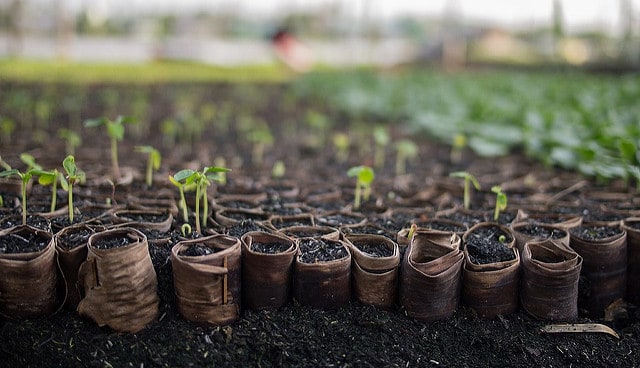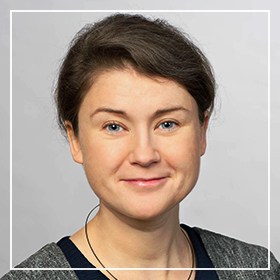In this post, Ruth Mueller explores how the compulsion for speed in academia plays out in the lives of postdocs.
Slow science is interesting for me because I do research on how working conditions and career structures in the academy affect knowledge production practices of scientists. Slow science first became a topic for me in 2010, in conversations with Jenny Reardon, Jake Metcalf and Martha Kenney at the Science & Justice Research Centre, UC Santa Cruz, where I was visiting that year. While the term seems to have emerged rather simultaneously in different national and intellectual contexts, in our context we remember it as brought up, rather casually, by UCSC-based feminist theorist Donna Haraway. In the fall of 2010, we organised an international workshop on the topic.
In my PhD research I have explored what life science postdocs in Austria and to a certain extent the US consider to be the rules and rationales of making a career in academia today, and how this understanding is reflected in their working practices. This research was part of larger research project at the Department of Science & Technology Studies, University of Vienna, that explored changes in the knowledge and work cultures in the life sciences more broadly.
The results of my research were at times quite dreary: They showed how the pressure to publish, as well individualistic structures of reward, shape social and epistemic relations in research labs in ways that decrease interest in collaboration and marginalise educational activities.
‘Slow Science’ as a concept and movement is, for me, a way to draw attention to such individual, social and epistemic consequences of a culture of, among other things, speed in academic work.
It raises questions about which values are being enacted in and through – the usually unmarked – ‘fast science’, and encourages imagining alternative ways of living and working in science. It invites practices of “otherworlding” to use feminist theorist Donna Haraway’s evocative expression and asks us to think about how things could always also be otherwise, to speak in Susan Leigh Star’s language, whose much too early passing left a gap in the community of feminist science studies scholars.
Departing from this perspective shaped by questions of power and possible subversion, attention moves towards exploring the relations between the present and the future that are enacted in current research cultures. Which and whose futures are governing present research cultures? Which kinds of presents, of work and life practices become possible or impossible, creating again which kinds of futures for whom?
To approach this question, I draw on work of Vincanne Adams, Michelle Murphy and Adele E. Clarke. In their 2009 paper Anticipation: Technoscience, life, affect, temporality they argue that “one defining quality of our current moment is its characteristic state of anticipation, of thinking and living toward the future” (p 246). They further elaborate:

“The present is governed, at almost every scale, as if the future is what matters most. … As an affective state, anticipation is not just a reaction, but a way of actively orienting oneself temporally. … Regimes of anticipation are distributed and extensive formations that interpellate, situate, attract and mobilize subjects individually and collectively.” (p. 248)
In an age of growing uncertainty on many levels, anticipation as the attempt to make the future controllable through certain action in the present becomes an ever more dominant mode of being in the world. The present increasingly becomes a resource to reach or avoid desired or dreaded futures.
It is this simple but fundamental claim that I bring to bear on my analysis of interviews with life science postdocs. I want to show how during the postdoc period, a time characterised by multiple career and livelihood uncertainties, the affective dimensions of anticipation indeed “interpellate, situate, attract and mobilize subjects individually and collectively”, shaping socio-epistemic relations among scientists significantly.
The interviews I draw on were conducted in the before-mentioned research project “Living Changes in the Life sciences”, in which I worked mainly with project leaders Ulrike Felt and Maximilian Fochler between 2007 and 2010. The core method of the project was 2-3 hour long, qualitative interviews with life scientists at all career stages who discussed their biographies and practices as scientists in the context of contemporary academic landscapes. My research focused on the postdoc interviews, 21 of which were conducted in Austria and 2 additional group interviews I conducted in the US in 2010 and 2011.
Why did I focus on postdocs?
The increasing prominence of this, in many fields, rather new type of researcher is in itself a symptom of changing patterns of organising academic work, lives and careers. Since there are more and more people attracted into science and acquiring a PhD, but far fewer senior positions, an increasing number of people is working as postdoctoral fellows for an increasing number of years. Career pressure is high during these years and postdocs need to engage very actively with current career rationales to obtain a more senior position. Hence, precariously located at this narrowest ‘bottleneck’ (Nature, 2003) of contemporary scientific careers, postdocs’ accounts offer dense narratives about how contemporary career rationales influence their ways of working and living in life science research worlds.
In the interviews we conducted, many postdocs articulate strong anxieties about their futures, regarding both their chances to succeed on an academic career path, but also regarding other employment.
While the step from being a PhD student to finding postdoctoral employment is considered rather easy, finding more stable employment after the postdoc period seems less likely. The postdoc period is perceived as a period of mainly trying to accumulate capital that might allow this transitions; most prominently, a strong publication record, as publications are considered the key currency for succeeding on the international academic labour market.
Yet, postdocs are well aware that only a small number of current postdocs will actually find such employment. What might as easily happen is that they work a consecutive number of postdoc positions in different countries with high commitment, but miss out on ever finding more stable employment. One postdoc called this “falling into the postdoc trap”. Spurred by the hope to be among the few who succeed – and often cheered on by senior scientists, who profit from hard working postdocs in their groups – postdocs focus exclusively on their plan A (an academic research career) and are often without a plan B, when they fail. As they have worked in different countries and/or on scholarships, they have little social security to fall back on, such as unemployment money – not to speak about retirement plans etc.
35 is considered to be the magic age for becoming a group leader – above this age chances to succeed in academia are thought to become ever slimmer. Yet, postdocs, who have spent years on the academic track often also think of themselves as becoming increasingly unattractive candidates for industry; private sector employers would consider them “too academic” in terms of the values, goals and habits guiding their working practices compared with M.Sc. or PhD holders fresh out of school. Though these perceptions might be exaggerated and job prospects surely vary from individual to individual, they increase postdocs’ affective experiences of pressures to succeed on the academic path once they have committed to it and contribute to turning anxieties about academic failure into fears of existential failure.

This again results in strong emotional language when postdocs speak about how important it is for them to succeed in being productive and successful, mostly in terms of publications, in the postdoc period. Postdocs say e.g. that “really everything depends on how you perform in the postdoc”; it’s a time when “you either do or you don’t”; you might feel like you have to publish this next paper “to still have bread to eat tomorrow”, and if you don’t publish “you’re toast” or even “dead”. Alongside the anxieties that are being expressed here, these quotes indicate a strong orientation towards the future, a state of anticipation that is characteristic for postdocs. It is the particular ‘inbetweenness’ of the postdoctoral period, its status as a time primarily dedicated to achieving and becoming something else, that leads to a state in which indeed, as Adams, Murphy and Clarke have phrased it “the present is governed, at almost every scale, as if the future is what matters most.”
This specific focus on the future co-produces specific types of presents: presents in which ties between scientists in labs become increasingly instrumental. Questions of individualised publication output (e.g. first authorship on papers) govern decision-making processes about collaboration and mentoring practices. I have detailed the processes through which this happens in other papers, so I won’t go into any details here, but what comes through is that postdocs feel that they need to exhibit a certain ‘devil-may-care’ mentality towards colleagues, groups and institutions in order to succeed on an academic career path. Caring and any other work that is community-oriented and will remain bound to the local and the present becomes a luxury they feel they cannot afford. Epistemic decisions are largely subordinated to questions of which research can yield well-publishable results. More unorthodox or risky projects become less attractive as they might jeopardise one’s career.
What to do with this pessimistic diagnosis?
One option and an important one is to attend to this situation by pointing out the problem, the dominant affective narratives and their consequences for social and epistemic relations between scientists. This is what I have done so far. Yet, I increasingly feel that this is not enough. I think it is important to also try to offer alternative accounts and stories about how things could always also be otherwise. Here I come back to the practice that Donna Haraway calls ‘otherworlding’, the speculative and creative practice of developing alternative imaginaries about the worlds we study. Otherworlding could be part of the slow science agenda. Drawing on feminist theorist Maria Puig de la Bellacasa’s work on matters of care, I suggest starting this process by exploring that which is already there but neglected, silenced and pushed to the margins.
Puig de la Bellacasa reminds us that another world is not only possible, but might as well be already there – co-existing more or less peacefully with the dominant. Thus, what I am currently interested in is exploring and emphasising latent values, counter narratives, deviant behaviours and hidden desires that are part of postdocs’ narratives about living and working in the life sciences, too. The goal is to strengthen these accounts by scholarly attention and to offer alternative narratives about what life and work in science could be like. This is a project that will often run the risk of being called naïve.
I have said before that it is especially activities of care that are devalued and pushed aside by current career rationales.
Hence for the project of otherworlding, I consider it particularly worthwhile to explore narratives that articulate a different relationship to care.
One of these counter narratives I am currently exploring emphasizes what I call ‘care for lively creatures’ as a value that should be, but not necessarily is important to scientific knowledge production today, as it is often marginlised by the neoliberal focus on output production.
So in order to contribute to the visibility of this latent value in a tentative way, I will close this post with a short interview excerpt from one of the group interviews I conducted with four female postdocs in the US in 2010. In this part of the conversation, they exchange strategies and rituals for helping themselves to stay connected with their initial passion for science, despite what they perceive as the rather alienating effects of academic career rationales. They draw on their fascination for living organisms and hopes of contributing to a greater good to keep themselves motivated for their research work. In the practice of gardening some of them find reconnection with their initial motives for becoming scientists. Working with plants, watching them grow and caring for their well-being reignites their passion for science and helps them to keep going. Yet, these moments of reconnection also make it even more evident for them that the values that govern science today are not those, which they initially attributed to scientific work. This is the exchange:

I read these and similar moments within the interviews as holding potentials for resistance based on caring about and for science in specific ways. These moments are providing us with different narratives about relating to the present and to the future, and about the relationship between the individual and the collective in science.
Emotions, commitments and desires surface that are otherwise mostly hidden behind what Susan Leigh Star calls a ‘transcendental wall of shame’ that informs you what is appropriate and rational to voice and what not. What I am interested in asking is this: How can we expand on these moments? How can we contribute to talking and writing about science in ways that strengthen these counter narratives and their protagonists and hence make visible that another science might not only be possible, but is, as Maria Puig de la Bellacasa reminds us, in some way also already there?





